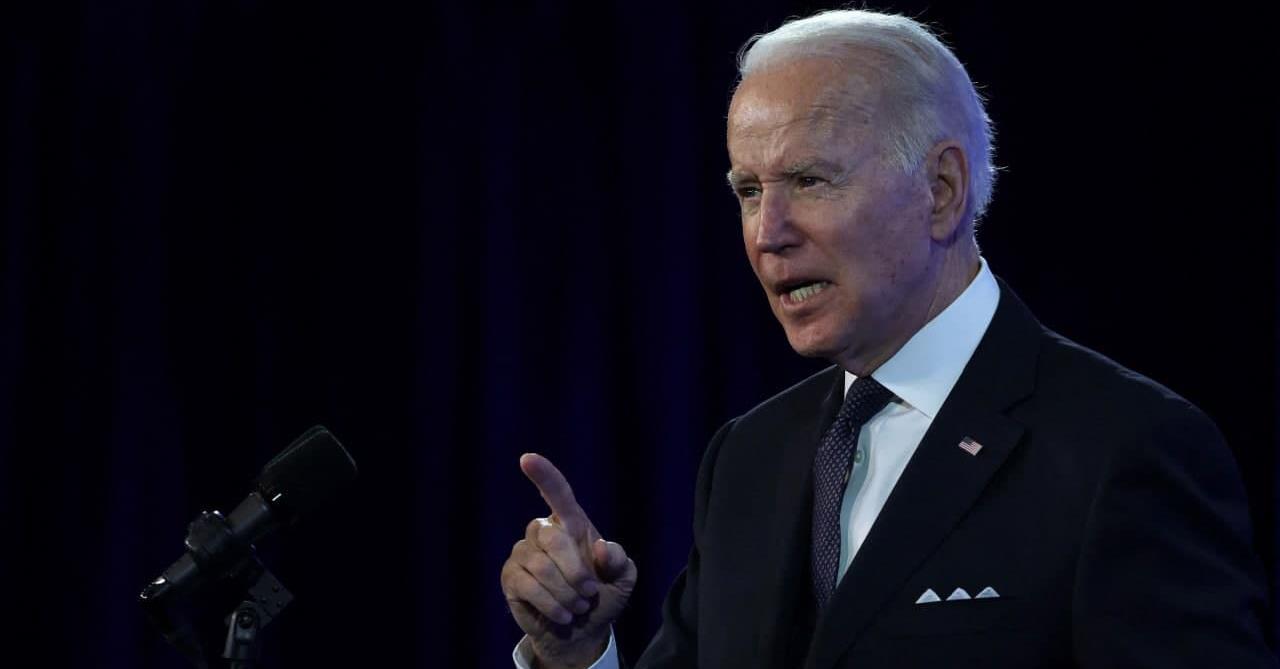WASHINGTON, Jan 25 (Reuters) - U.S. President Joe Biden said on Tuesday he would consider personal sanctions on President Vladimir Putin if Russia invades Ukraine, as Western leaders stepped up military preparations and made plans to shield Europe from a potential energy supply shock.
The rare sanctions threat came as NATO places forces on standby and reinforces eastern Europe with more ships and fighter jets in response to Russia's troop build-up near its border with Ukraine.
Russia denies planning an attack and says the crisis is being driven by NATO and U.S. actions. It is demanding security guarantees from the West, including a promise by NATO never to admit Ukraine. Moscow sees the former Soviet republic as a buffer between Russia and NATO countries.
Following multiple rounds of U.S.-Russia talks over Ukraine that failed to reach a breakthrough, Biden, who has long warned Moscow of economic consequences, upped the ante on Tuesday by saying Putin could personally face sanctions.
If Russia were to move into Ukraine with the estimated 100,000 soldiers it has massed near the border, Biden said it would be the "largest invasion since World War Two" and would "change the world."
Speaking to reporters, Biden was asked if he would see himself imposing sanctions on Putin directly if Russia invaded Ukraine. "Yes," he responded. "I would see that."
Direct U.S. sanctions on foreign leaders are rare but not unprecedented. Others who have faced sanctions include Venezuela's Nicolas Maduro, Syria's Bashar al-Assad and Libya's Muammer Gaddafi.
On Tuesday, a U.S. plane carrying military equipment and munitions landed in Kyiv, the third installment of a $200 million package to shore up Ukraine's defenses.
The Pentagon has put on alert about 8,500 U.S. troops in Europe and the United States to be ready to deploy to NATO's eastern flank if needed.
Russia said it was watching with great concern and accused Washington of fuelling tensions over Ukraine, repeating its line that the crisis was being driven by U.S. and NATO actions rather than by its own build-up of forces near the Ukrainian border.
Biden said on Tuesday he may deploy U.S. troops in the nearer term but ruled out sending unilateral U.S. forces to Ukraine, which is not a NATO member.
"There is not going to be any American forces moving into Ukraine," he said.
So far, NATO has about 4,000 troops in multinational battalions in Estonia, Lithuania, Latvia and Poland, backed by tanks, air defenses and intelligence and surveillance units.
As Western leaders appeal for unity, differences have emerged among European nations over how best to respond. Putin is due to meet Wednesday with the heads of some of the biggest companies in Italy, Russia's fifth biggest trading partner, despite the rising tensions.
"It is absolutely vital that... the West is united now, because it is our unity now that will be much more effective in deterring any Russian aggression," British Prime Minister Boris Johnson said, adding Britain was discussing with the United States the possibility of banning Russia from the SWIFT global payments system.
French President Emmanuel Macron said he would seek clarification over Russia's intentions in a phone call with Putin set for Friday. Political advisers from Russia, Ukraine, Germany and France are due to meet in Paris on Wednesday.


